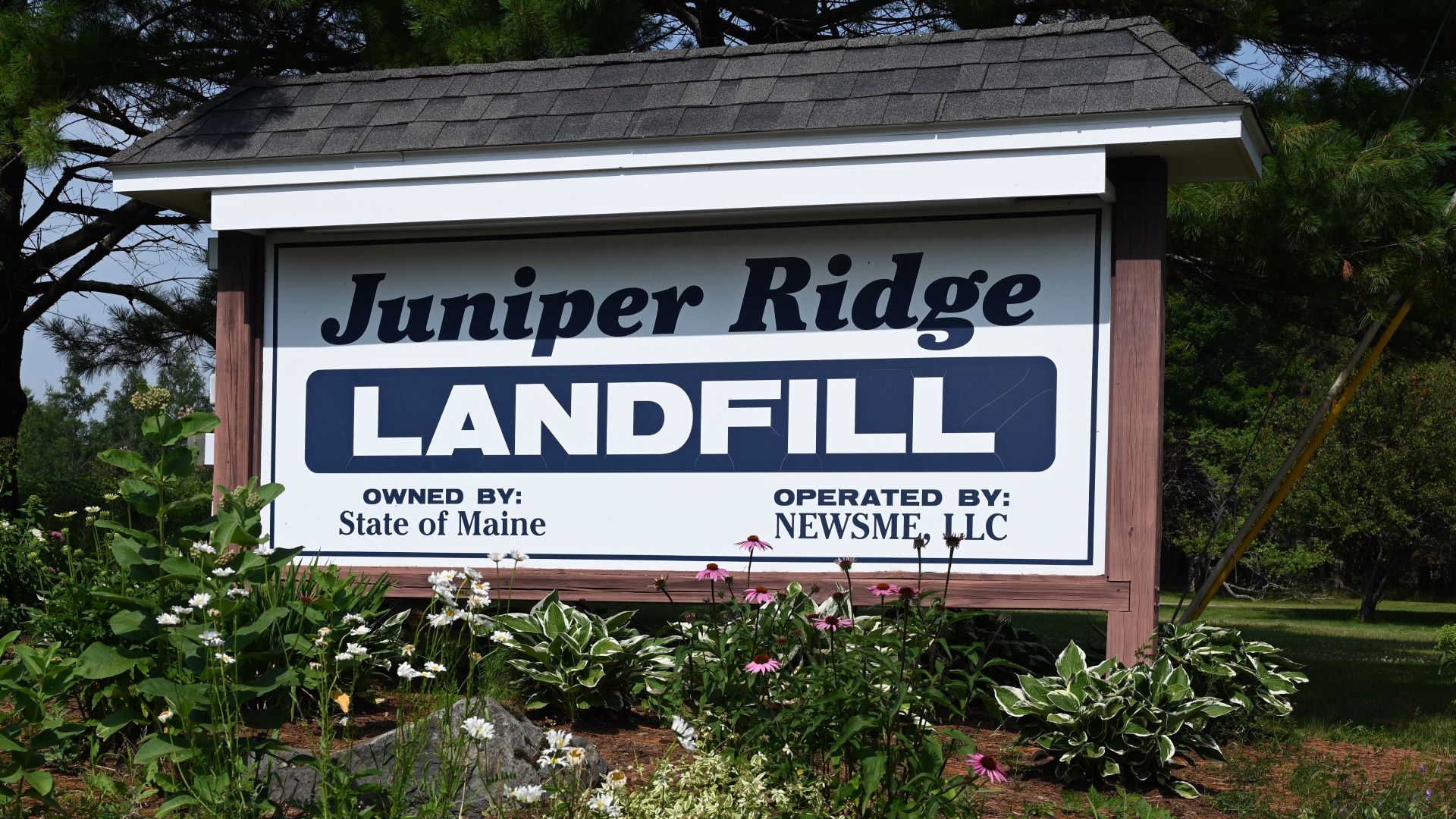The Maine Department of Environmental Protection will decide by August 23 whether a proposed expansion of the state’s largest landfill would provide a substantial benefit to the public, a required step before the landfill’s manager, the state’s Bureau of General Services, can apply to increase the capacity of the facility.
If approved, the expansion will add 11 years to the operating capacity of Juniper Ridge, which takes in roughly half of the state’s waste, and add 61 acres to its footprint.
Without the expansion, Juniper Ridge will run out of room by early 2028, Lisa Turner, an engineer with Sevee & Maher, told a small crowd gathered for a hearing on the issue earlier this week.
Juniper Ridge is owned by the state and managed by the Bureau of General Services, which contracts with NEWSME Landfill Operations, LLC for operations, a division of the massive waste management firm Casella.
Built in 1996, the landfill, which takes in roughly 1 million cubic yards of waste each year, was expanded by 9.35 million cubic yards in 2017. This proposed expansion would add another 11.9 million cubic yards.
The Bureau of General Services is simultaneously considering whether to extend its contract with Casella to operate for the landfill for six years beyond its 2034 expiration date, through 2040.
Maine is facing a looming waste disposal crisis. Between 2018 and 2022, the amount of municipal solid waste landfilled in the state shot up 47 percent, from 388,629 tons in 2018 to 569,911 tons in 2022, while the total amount of waste going to Maine landfills (including sludge, construction demolition debris, bulky waste and municipal solid waste) increased by 34 percent.
“I’ll just come right out and say it: it’s easier to throw away trash than it is to recycle it,” Susanne Miller, director of the Bureau of Remediation and Waste Management at the Maine DEP, told lawmakers earlier this year.
“Disposal capacity is running out, and we’re running out of time,” Miller said. “If the expansion [of Juniper Ridge] does not occur, the state’s going to be in trouble. There’s going to be a crisis situation.”
There are various efforts underway statewide to divert waste from landfills, but many will take years to implement.
Legislation passed in 2022 that banned the spreading of sludge on farmland due to concerns over PFAS has complicated the waste disposal problem and added to landfills, in part because the wet sludge requires stabilization with items like construction debris, ash and soil, some of which has been imported from out-of-state.
Because of this, lawmakers reversed course last year — at least temporarily — on a 2022 ban on out-of-state waste coming into Maine landfills. The new agreement allows Casella to import 25,000 tons of out-of-state waste annually until 2025 to stabilize sludge at Juniper Ridge.
Earlier this week, the Bangor Daily News reported that a new bio-digestion process in Brunswick could reduce the volume of a sludge delivery by nearly 90 percent by using microorganisms to “eat up the wet waste and leave behind the reduced volume of biomass that Casella will then take to a landfill.” The digester has been creating energy out of organic waste for about a decade, according to the BDN.
At a hearing on Monday, a group of residents from around the region, including members of the Penobscot Nation, called on the state to end its contract with Casella and deny the expansion.
Many worried about having a for-profit operator in charge of the state’s largest landfill. Several also cited a clause in state statute that requires the state to consider take environmental justice — “the right to be protected from environmental pollution and to live in and enjoy a clean and healthful environment regardless of ancestry, class, disability, ethnicity, income, national origin or religion” — into account when determining whether a landfill expansion will benefit the public.
Expanding the landfill, said Old Town resident Ed Spencer, “might partially benefit most Mainers, but it certainly will have negative environmental quality impacts for local humans. This is not equal protection. This is a sacrifice.”







